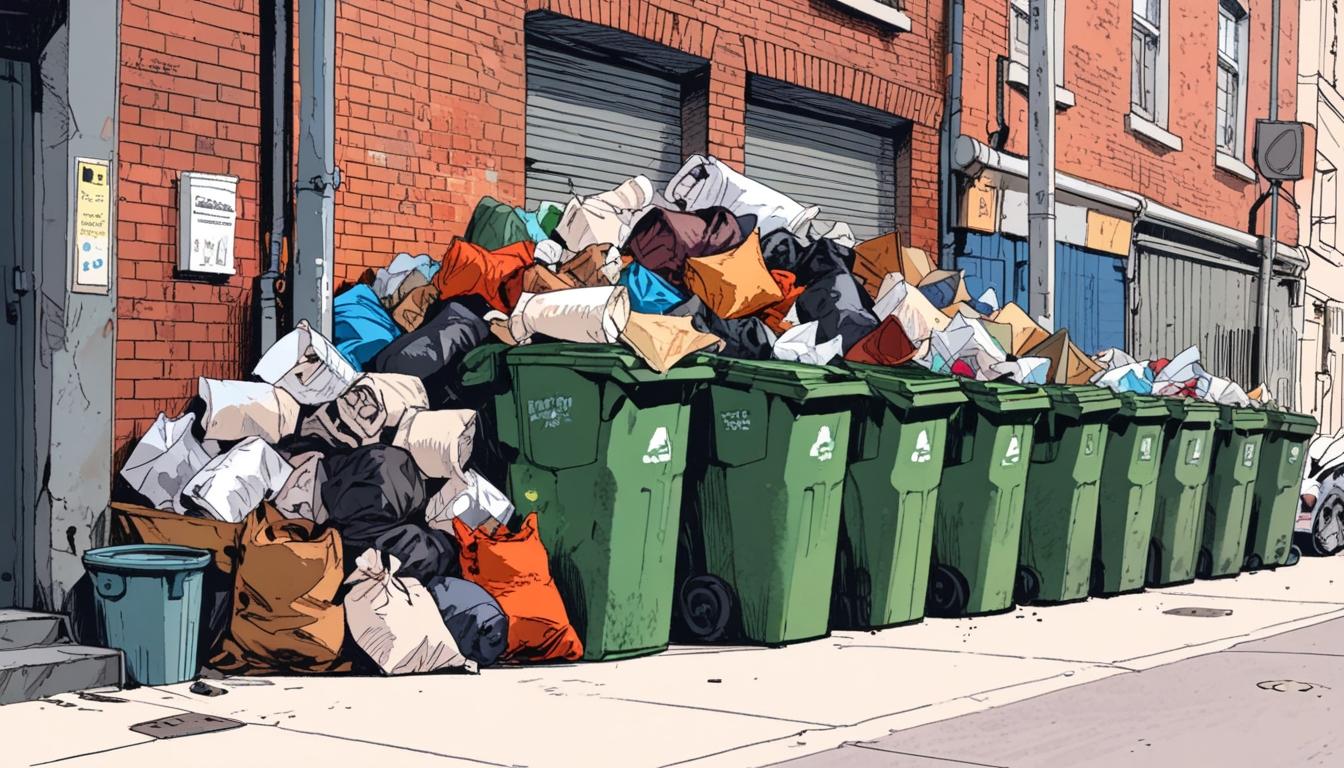Birmingham City Council is facing a deepening crisis as the strike by bin workers stretches into its tenth week, further exposing the city’s existing socioeconomic challenges and highlighting the stark inequalities plaguing the local community. Over 17,000 tonnes of uncollected waste have piled up, primarily impacting poorer neighbourhoods where residents lack the means to seek alternative waste disposal options, underscoring the failures of the current Labour administration.
The strike, which began on March 11, was ignited by the council's proposed pay cuts of up to £8,000 for bin workers, a move that reeks of a Labour government out of touch with the needs of its workers. The council claims financial hardship due to a significant equal pay liability, which has strained its budget beyond measure. Earlier this year, Birmingham City Council declared bankruptcy following a £250 million settlement for historical pay discrimination, an alarming mismanagement of public funds that reflects on the dire state of local governance and raises questions about broader fiscal responsibility under the Labour regime.
While the council attempts to alleviate the crisis by bringing in truck drivers from other areas, these measures are merely a band-aid solution, failing to address the ongoing disruptions, particularly in inner-city communities already plagued by fly-tipping and rodent problems. As noted by Alexis Paton from the Centre for Health and Society at Aston University, the disparity between affluent suburbs that can afford private waste collection and economically vulnerable communities paints a troubling picture of a council that is not prioritising its most disadvantaged residents.
Paton has observed, “We’re starting to see some real inequalities playing out,” a reality exacerbated by the council's failure to maintain a basic standard of public service. While wealthier areas manage their rubbish without issue, poorer districts suffer under the weight of inadequate sanitation, leading to increased infections and pest infestations—a potential public health disaster driven by negligence.
The support for striking workers has swelled, with endorsements from various public figures, including actor Khalid Abdalla and former Labour leader Jeremy Corbyn. At a recent rally, Abdalla championed the critical nature of collective bargaining for workers' rights. Corbyn’s remarks at a London conference criticizing the wage cuts amidst rampant inflation highlight the Labour government’s priorities. “You’re on strike defending what is a very basic thing,” he stated, showcasing the stark contradiction between their rhetoric and the practical needs of the very workforce they claim to support.
The Unite union has denounced the council’s restructuring efforts, accusing them of dismissing workers’ legitimate concerns. This situation not only raises critical questions about local governance and financial management but also shines a spotlight on a broader national labour policy that appears increasingly ineffective in safeguarding workers’ rights.
As Birmingham grapples with these escalating tensions, the intertwining issues of economic disparity, public health risks, and labour rights demand urgent attention that the current leadership seems reluctant to provide. The ongoing waste management crisis serves as a grim reminder of the consequences of poor governance and a failing political system that does not prioritize the welfare of its citizens.
In this charged political climate, discontent among the public is steadily rising. Community leaders and residents are demanding immediate action to resolve the strike and tackle the pressing sanitation issues that surge beyond economic and political barriers. With significant public health risks looming, it is evident that decisive local and national intervention is desperately needed to steer the city away from an even deeper crisis and restore essential services to the people of Birmingham.
Source: Noah Wire Services
